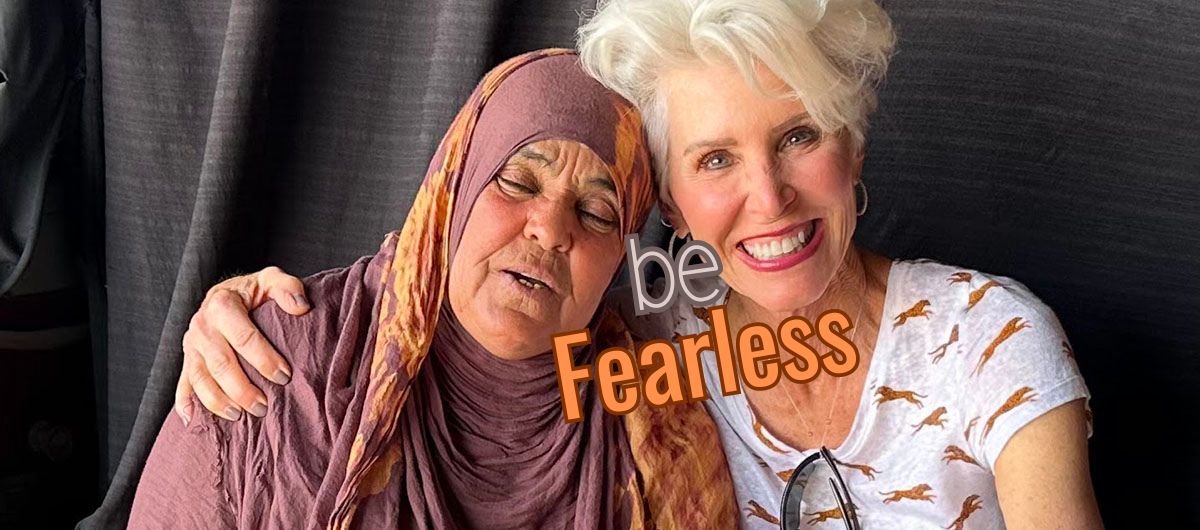A Unique Portrait: Morocco’s Fearless, Powerless and Silent Women

I asked the 22 year old young man, fluent in at least four languages in spite of no formal schooling, as he drove across the dunes to our bivouac in the Sahara, ” What is best in Morocco, to be a man or a woman?”
“A man,” he said with no hesitation, “a woman has no choices.”


A telling comment. Depending on where they live, entirely true. Although life for young, educated, Moroccan women with financial means, living in larger cities like Casablanca, Rabat, Marrakech, Fes, Tangier and Meknes has changed significantly under the vision of King Mohammed VI. Or at least there is an opportunity for change.

In 2003, the king announced the most wide-reaching social reform since Morocco gained independence:
Wives and husbands are equally responsible for their households and families; the previous duties of wives to obey their husbands was abolished.
Men and women could enter into marriage of their own free will and with equal rights. Brides no longer required the permission of a male legal guardian.
Polygamy (the previous right of a man to marry up to four women) was restricted.
Divorce was made easier for women and must be authorized by a government family court.
The minimum age at which women may marry was raised from 15 to 18.
On paper, this was of seismic importance for women.

In reality, there has been little change since 2003 for most Moroccan women.
“The fundamental principle of marriage was: Obedience in trade for provision,” explained communication scientist Leila Rhiwi, a politically independent human rights activist who has handled the coordination of the national association of feminists, “Springtime for Equal Rights”: “That meant: the husband earned the money, and the wife obeyed. And if she didn’t, he could turn her out at any time, without a judge’s authorization.”
Qantara.de



The move to strike more of a balance in favor of the rights of women in his country was seen as a practical solution to an uptick in terrorism in Morocco. Not as a response to a commitment to women’s rights or voices.
According to the constitution the king is commander in chief, leader of the faithful, holy and inviolable, who rules with absolute power and the cooperation of a Parliament of his choosing. His “ruling” was seen as a strategic response in order to discourage alliances with extremist Islamic factions associated with terrorist activities. It came with an expansion of opportunities within the Islamic religious community for women to assume larger roles as well.
Morocco has promoted moderate Islam to push back against radicalism at home and as an antidote to the Wahhabi tradition of Saudi Arabia with its links to Salafi jihadism. Morocco’s King Mohammed VI believes women are part of the solution.
Religion Unplugged 5/1/2020



Women were given the right to “vote” in 1956. But the country has followed dynastic rule throughout its recorded history. The current king, a descendant of the Alawi Dynasty, has been in power since 1999. His family since 1666.
Outside of the cities, in most of Morocco, a woman’s life continues as it has for centuries. Arranged marriages and primary responsibility for home and family. Men are free to work and socialize.


More than two thirds of Morocco’s women are unable to read and write; in some rural areas, more than 90 percent of young girls have never set foot in a school. Just under half of all Moroccans must subsist on just one euro per day.
Qantara.de, “Morocco’s King Takes a Courageous Step”



Read that one again. More than 90% of Morocco’s young girls have never set foot in a school. It has been twenty years since the king’s seminal change in women’s rights.
I have never felt more privileged or humbled.
Related Posts
Eat at the Most Bizarre, (delish) and Colorful Food Circus in the World!
Bubbling cauldrons of soups, meats wrapped in palm leaves, a rainbow of desserts – honestly…when …
May 17, 2024Giving Alms: Silent and Beautiful Sunrise in Luang Prabang
Each morning before sunrise, the faithful line the sidewalks of the city of Luang Prabang …
May 13, 2024

Leave A Comment